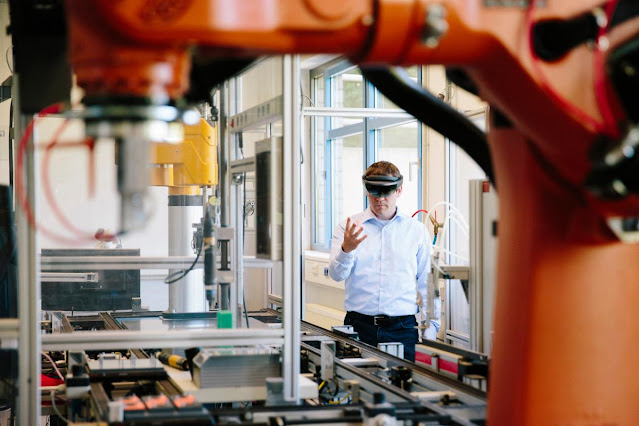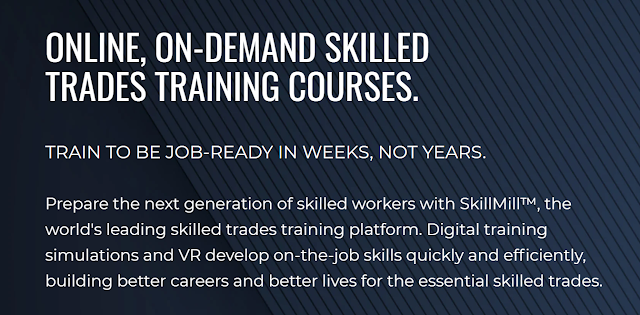
Expect high-bandwidth technologies, such as augmented and virtual reality visualization, to play an increasing role in manufacturing as engineers and floor technicians can improve physical processes with virtual guidance. 5G will give these workers greater ability to perform these tasks wherever needed. Image Credit: Getty Images 
According to an ABI Research report, before the pandemic, the virtual reality market was forecasted to grow at a 45.7% compound annual rate, surpassing $24.5 billion in revenue by 2024. But even amid the health crisis, virtual reality is booming. A PricewaterhouseCoopers survey predicts that nearly 23.5 million jobs worldwide will use augmented and virtual reality by 2030 for training, work meetings, or customer service. Founded in 2016 by Doug Donovan and Steve Quirk, Interplay provides online and virtual reality training for a range of skilled trades. Its digital learning simulations span HVAC, plumbing, electrical, facilities maintenance, and solar subject matter, letting customers practice hands-on learning and train to be job-ready. Interplay’s platform delivers a catalog of courses and measurement and engagement tools, as well as knowledge checks, 3D simulations, and more. Sim walkthrough videos feature experts who lead users through procedure guides step-by-step, with a short quiz and supplemental learning material including wiring diagrams, equations, example system configs, and charts following each lesson. With each course, Interplay guides users through the diagnostic process. The platform then presents a randomly generated fault in a system with some guardrails removed. In the last stage, users aren’t told what fault they’re working on. Instead, they have to rely on earlier training, employing the diagnostic process established throughout the course. Interplay, whose platform supports smartphones, tablets, and PCs in addition to virtual reality headsets, offers learning paths, or roadmaps created to help teams learn skills in the right order. It also allows managers to view the top users based on education credits earned in a timeframe and to administer tests that assess skills and abilities, with an automated system that instantly generates a report. Interplay competes with a number of startups leveraging virtual reality and simulation to upskill workers. Strivr, a company behind a platform that companies use to train employees, recently raised $30 million in venture funding. There’s also Talespin, which nabbed $15 million last March to develop what it calls “extended reality” using technologies like virtual reality and augmented reality. But Donovan says the pandemic is acting as an adoption catalyst for his company’s solutions. In 2020, its usage was up 445%, exceeding 300% year-over-year growth. And now, Interplay has more than 2,000 customers including Rheem Manufacturing and Tesla, which combined have 15,000 monthly users on Interplay’s training platform. “Skilled workers have been overlooked by edtech innovation and the venture community,” Donovan told VentureBeat via email. “Most investment has been in digital skills or knowledge skills companies. Interplay Learning is in unique position to serve the electrical, mechanical and industrial market at scale.” Owl Ventures and S3 Ventures led Interplay’s series B funding round announced today. Strada Education Network and The Venture Reality Fund also participated, as well as existing investors SJF Ventures, Sierra Ventures, Holt Ventures, Wild Basin Investments, and Shelter Capital Partners. It brings the 60-person startup’s total raised to date to $25 million. | 





0 Comments